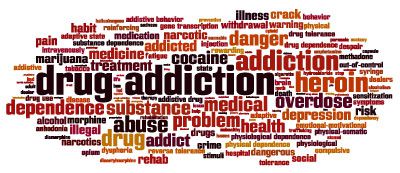This article is posted as part of National Drug and Alcohol Facts Week Drug and Alcohol Facts Week® (NDAFW). NDAFW is a national health observance for teens to promote local events that use NIDA science to SHATTER THE MYTHS® about drugs.

Many people think drug addiction, dependence, and tolerance are pretty much the same thing. But in fact, each term means something very different about how drugs affect a person’s body and brain. Learning the difference is important.
Tolerance
Tolerance happens when a person no longer responds to a drug in the way they did at first. So it takes a higher dose of the drug to achieve the same effect as when the person first used it. This is why people with substance use disorders use more and more of a drug to get the “high” they seek.
Dependence
Dependence means that when a person stops using a drug, their body goes through “withdrawal”: a group of physical and mental symptoms that can range from mild (if the drug is caffeine) to life-threatening (such as alcohol or opioids, including heroin and prescription pain relievers). Many people who take a prescription medicine every day over a long period of time can become dependent; when they go off the drug, they need to do it gradually, to avoid withdrawal discomfort. But people who are dependent on a drug or medicine aren’t necessarily addicted.
Addiction
See what teens are asking about tolerance, dependence, and addiction—and the answers—here.